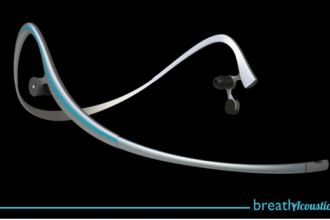The pandemic had global impacts on economies, working styles, and above all, healthcare. With millions of health workers around the world tasked with working through unforeseen conditions, the COVID-19 pandemic radically shifted how this industry functions. This extends to medical office assistants, with those working in these roles having a change of daily tasks and working responsibilities.
Within this article, we’ll be exploring the life of a medical assistant and demonstrating how their daily responsibilities have changed over the course of the pandemic.
We’ll be discussing:
- What is a medical assistant?
- What education does a medical assistant need?
- How has COVID-19 impacted healthcare?
- How has the pandemic changed the daily role of a medical office assistant?
Let’s get right into it.
What is a medical assistant?
A medical assistant’s primary role is to work alongside physicians in hospitals, carrying out their orders. Additionally, medical assistants have a range of administrative tasks that they have to take on. These could be greeting and registering patients, ensuring that medical records are correctly filled out and categorized, and answering phones in the hospital.
Most likely, if you call into the reception of a hospital department, you’ll be talking to a medical assistant. After the direction of physicians, a medical assistant will also draw blood, run lab tests, and conduct electrocardiograms.
Overall, medical assistants act as a support system from the hospital. They run medical exams based on the direction of doctors, while managing the administrative side of the medical process. They’re a vital part of a hospital and always keep things running smoothly.
With a predicted 18% job employment opportunity increase between 2020-2030, this role is increasingly becoming needed across the country to help hospitals run efficiently.
What education does a medical office assistant require?
The majority of medical assistants will have had to undertake some form of postsecondary education. While it is possible to pursue this career straight from high school with on-site job training, the salary of this route is severely limited and will take years of training.
There are also several medical assisting programs at a range of vocational schools across America. An applicant can graduate from these schools in less than a year, making this a valuable pathway for those looking to save time. These programs emphasize the essentials that every medical assistant should learn. Upon graduation, students will receive a medical assistant diploma.
If you walk into a hospital and talk to a medical assistant, you’ll most likely find that they have a degree in a medical assistant program. These are general courses that teach basic English and math skills before progressing to more complex medical information – aiming to arm the student with a comprehensive understanding of how hospitals run.
One of the most popular courses for medical assistants is one that includes specific information, such as a Diagnostic Medical program. These will teach medical assistants everything they need to know while also offering more advanced knowledge, which can help students to land higher salaries in the long term.
All medical office assistants will have to take the Certified Medical Administrative Assistant Certification (CMAA).
How has COVID-19 impacted the healthcare system in general?
No industry has felt the impact of COVID-19 more than healthcare, being quite literally the front lines of defense against the disease. Due to this, hospitals and the healthcare industry as a whole has deeply felt the effects of the pandemic.
What began as a large additional surge of people admitted to the hospital soon became a torrent of COVID-positive patients. Before the development of the vaccines, this meant death on scales that had not previously been seen. Everyone in the industry felt the impact of these cases, and many around the world saw the passing of loved ones.
With this surge in cases also came a lack of PPE supplies, with the American government failing to provide adequate measures, leading to many doctors, medical assistants, and nurses having to reuse or repurpose PPE.
Alongside these impacts, the fear of infection and the reality of high transmission rates lead all healthcare workers to be continually exposed to the risk of infection. This made working conditions even more stressful, with the hospital being a hotspot for COVID infections.
How has the pandemic changed the role of a medical assistant?
While typically performing a range of administrative and clinical duties, the pandemic increased the pressure of this job, forcing a heightened workload for medical assistants. Instead of managing a select handful of patients, medical assistants had to deal with more patients than ever.
The pandemic increased the number of patients that were admitted on a daily basis to the hospital. As medical assistants are tasked with recording all of these patients, documenting their data, their paths of treatment, and all the medicine they receive, the job increased in volume dramatically.
Alongside this, clinical duties also increased, with medical assistants having to run more tests than ever. From drawing blood to running lab tests and conducting exams, medical assistance had to take on more responsibility as doctors and nurses were spread thin.
As more people checked into hospitals online, this also led to the amount of admittance paperwork increasing. All of these above tasks had to be carried out while wearing cumbersome PPE equipment, with the worries of infection at an all-time high.
From multitasking an incredible amount of work to being on their feet for hours at a time, the daily life of a medical assistant radically changed during the pandemic.
Final Thoughts
The ongoing pandemic has had world-altering consequences within every section. But, nowhere are these impacts more visually present than in healthcare. Those in these systems, from doctors and nurses to medical assistants, are deeply impacted by the pandemic, seeing levels of work that are incomparable to the past.
Alongside the increased amount of work that the pandemic has caused, there has been an increased demand to fill these working roles. If you’re looking to get into the medical field, there couldn’t be a better time, with demand at an all-time high.








